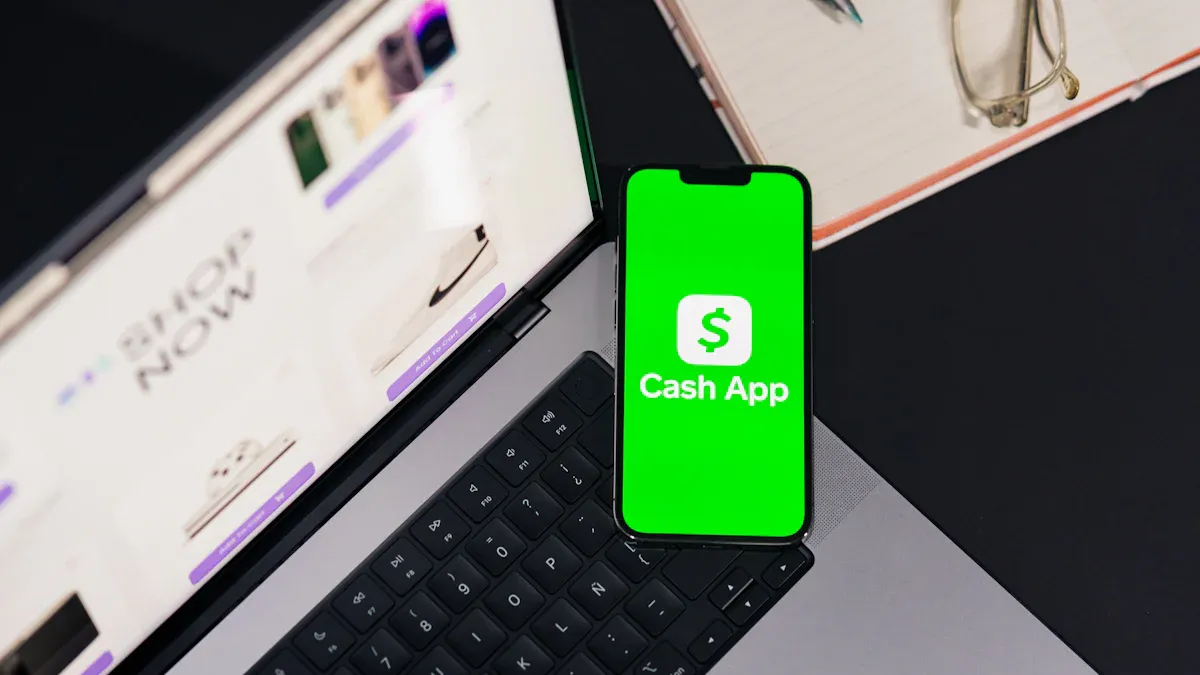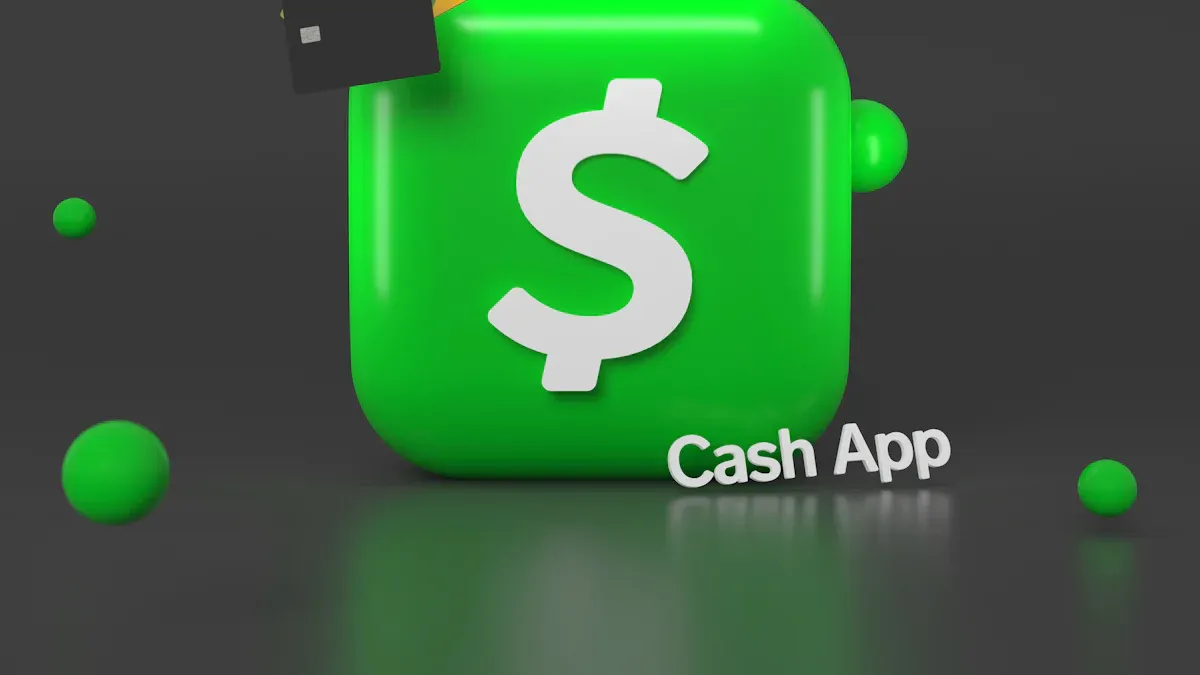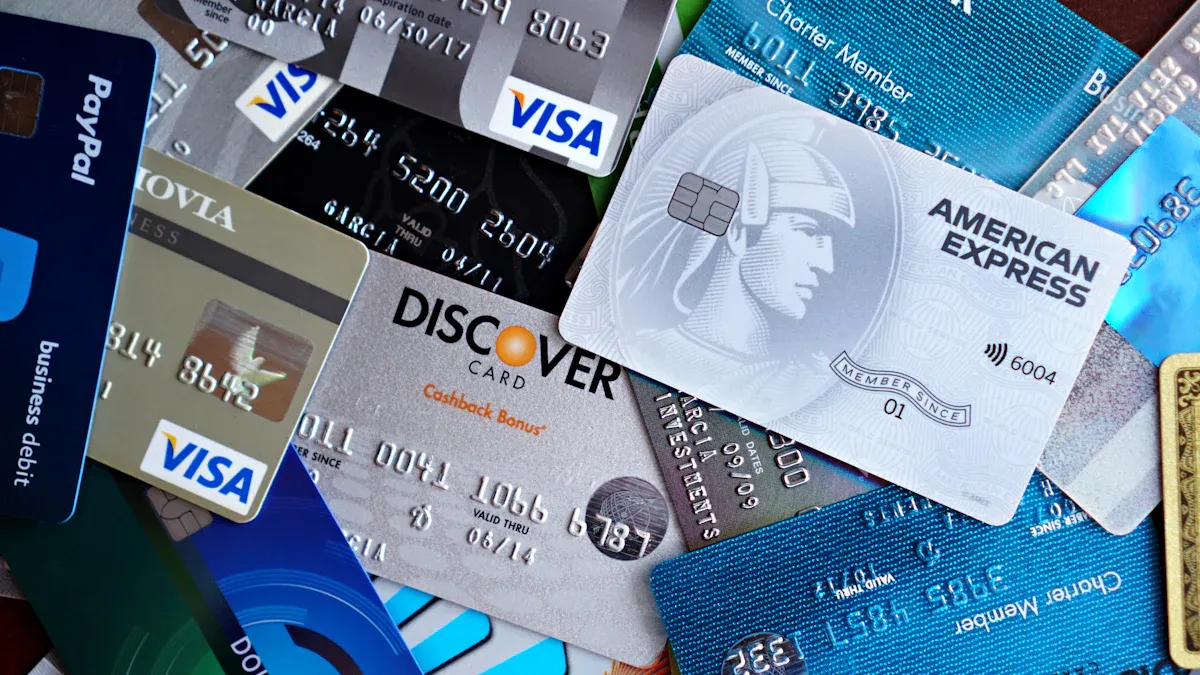- EasyCard
- Trade
- Help
- Announcement
- Academy
- SWIFT Code
- Iban Number
- Referral
- Customer Service
- Blog
- Creator
Is the Cash App Card a Prepaid Card? A Complete Guide and Analysis of Usage Limitations

Image Source: pexels
Is the Cash App Card a prepaid card or a debit card?
The answer to this question is more complex than you might think. This popular payment tool, with over 57 million monthly active users, operates in a unique way, combining characteristics of both card types. Accurately understanding its nature can help you maximize its functionality and clearly distinguish it from other payment options like Green Dot.
Key Points
- The Cash App Card combines features of both prepaid and debit cards. It requires you to preload funds before use, but it also offers bank-like direct deposit functionality.
- The Cash App Card has spending and withdrawal limits. Verifying your account can increase these limits, unlocking more features.
- You can fund your Cash App account through a linked bank account, debit card, or cash at retail stores. Meeting a minimum monthly direct deposit amount can waive ATM withdrawal fees.
- The Cash App Card offers unique money-saving features, such as “Boosts” instant discounts. You can also use it to invest in stocks and Bitcoin or use a free virtual card to enhance online payment security.
- The Cash App Card cannot help you build credit history. However, your funds are protected by FDIC insurance, just as safe as in a traditional bank.
The Dual Nature of the Cash App Card: Prepaid or Debit?

Image Source: unsplash
To accurately understand the Cash App Card, you need to recognize that it’s not a traditional single-type card. It cleverly blends features of both prepaid and debit cards, forming a unique hybrid financial tool. Let’s dive into its dual nature.
Why Is It Like a Prepaid Card?
From a core usage perspective, the Cash App Card behaves very much like a prepaid card. Its fundamental principle is: you must preload funds into your account before you can spend. You cannot overdraw beyond your account balance (unless you meet specific conditions and enable overdraft protection).
This “load-first, spend-later” model is a hallmark of prepaid cards. You need to actively perform an “Add Cash” operation to deposit funds into your Cash App balance through a linked bank account, debit card, or cash. This balance represents the total funds available for spending. In fact, in Cash App’s official terms of service, it is described as:
- Cash Card
- Virtual or physical Cash Card
- A prepaid payment card under the Cash App Prepaid Card Program
This design provides an effective budgeting tool, ensuring your spending stays within your planned limits.
Why Is It More Like a Debit Card?
Despite its prepaid card characteristics, the Cash App Card functions more like a fully-featured debit card in many aspects. This is primarily because it is directly linked to a bank-supported account.
Did You Know? Your Cash App account funds are actually managed by Sutton Bank, a member of the Federal Deposit Insurance Corporation (FDIC), which provides banking services and issues the card. This means your funds are protected by FDIC insurance, offering the same level of security as a traditional bank’s debit card account.
Its most debit-card-like feature is its support for direct deposit functionality. You can obtain an account and routing number to receive paychecks, tax refunds, or other direct transfers, just like a traditional bank account. This is a core feature of debit cards.
With direct deposit enabled, you can unlock additional advanced services:
- Early Paycheck Access: Your paycheck can arrive up to two days earlier than with a traditional bank.
- Overdraft Protection: Receiving at least $300 in monthly direct deposits qualifies you for free overdraft protection.
- ATM Fee Reimbursement: Meeting specific direct deposit conditions allows Cash App to reimburse ATM withdrawal fees.
These features far exceed the capabilities of typical prepaid cards, making the Cash App Card nearly equivalent to a modern digital banking debit card in daily use.
Prepaid Card vs. Debit Card vs. Cash App Card
To help you better understand the differences, the following table compares the three from key dimensions.
| Feature | Traditional Prepaid Card (e.g., Green Dot) | Traditional Debit Card | Cash App Card |
|---|---|---|---|
| Funding Source | Requires preloading funds, stored independently. | Directly linked to a bank checking account. | Linked to Cash App balance, requires preloading but supports direct deposits. |
| Bank Account Requirement | Usually not required. | Must be linked to a bank account. | No traditional bank account needed, but offers account-like functionality. |
| Credit Impact | None. Prepaid card usage does not affect your credit score. | None. Debit card spending is not a credit activity, so it does not affect credit score. | None. Its transactions are not reported to credit bureaus, so it cannot build credit. |
| Functionality | Limited, mainly for spending and withdrawals. | Comprehensive, supports checks, transfers, and financial management. | Extensive, supports investments, Boosts discounts, and free virtual cards. |
In summary, the Cash App Card is an evolved payment tool. It combines the convenience and manageability of prepaid cards with the robust account functionality and security of debit cards.
Core Features and Usage Restrictions

Image Source: pexels
Understanding the Cash App’s features and restrictions can help you manage your funds more safely and efficiently. You need to be clear on its spending, withdrawal, and funding rules to avoid unnecessary issues or fees.
Spending and Transfer Limits
Your transaction limits depend on whether your account is verified. Verification typically requires providing your full name, date of birth, and the last four digits of your U.S. Social Security Number (SSN). Completing verification significantly increases your account privileges.
The following table clearly shows the main differences between verified and unverified accounts:
| Feature | Unverified Account | Verified Account |
|---|---|---|
| Sending Limit | $250 per 7 days | $7,500 per week |
| Receiving Limit | $1,000 per 30 days | Unlimited |
ATM Withdrawal Rules and Fees
You can use the Cash App Card to withdraw cash at any ATM that accepts Visa. However, you need to be aware of the associated fees and limits.
- Standard Fees: Cash App charges a $2.50 fee per ATM withdrawal. Additionally, the ATM owner may charge an extra service fee.
- Withdrawal Limits:
- Single transaction maximum: $310
- Daily maximum: $1,000
- Weekly maximum: $1,000
Money-Saving Tip: How to avoid ATM fees? If you receive at least $300 in monthly direct deposits to your Cash App account, Cash App will reimburse ATM withdrawal fees. This includes unlimited free withdrawals at in-network ATMs and one reimbursed out-of-network ATM withdrawal per month.
Account Funding Methods
Funding your Cash App account is highly flexible, with multiple options available:
- Linked Bank Account: The most common method, allowing direct transfers from a linked bank account.
- Debit Card: You can link a debit card from another bank to fund your account.
- Cash Funding: You can visit participating retail stores to load cash. The process is simple: generate a barcode in the app, have the cashier scan it, and pay in cash.
- Participating Retailers: Include Walmart, 7-Eleven, Walgreens, CVS, Dollar General.
- Fees and Limits: Cash funding typically incurs a $1 fee per transaction. Single transaction amounts range from a minimum of $5 to a maximum of $500.
International Usage Restrictions
The Cash App Card is a Visa debit card, meaning you can use it at merchants worldwide that accept Visa. This provides convenience for online shopping or international travel.
However, note that transactions may incur cross-border fees. Before making international purchases, check the latest supported country list and fee policies via the Cash App website or customer service.
Linking Other Prepaid Cards: Expanding Your Payment Options
Linking other cards to your Cash App account is a way to fund it and increase financial flexibility. However, not all cards are supported, and understanding the rules and restrictions is crucial.
Which Prepaid Card Brands Are Supported?
Cash App has specific requirements for prepaid card compatibility. While it supports most cards associated with Visa, Mastercard, or American Express, some popular brands have limitations.
- Green Dot and Netspend: These prepaid cards have poor compatibility with Cash App. You may not be able to use them to directly fund your Cash App account, though they may sometimes be used to receive direct deposits.
- American Express Serve: These prepaid debit cards generally have better compatibility. Designed as alternatives to traditional banks, they often have fewer hidden fees, making them less restricted when linked to third-party apps.
Important Tip: To successfully link a prepaid card, ensure it has enabled online transaction functionality and belongs to a major payment network (e.g., Visa or Mastercard).
How to Add a Prepaid Card to Cash App?
Cash App does not support direct funding from prepaid cards. However, you can use an indirect method by using PayPal as a “bridge” to transfer funds.
- Link the Prepaid Card to PayPal: Log into your PayPal account, go to the “Wallet” or “Funds” page, select “Link a Card,” and enter your prepaid card details.
- Transfer Funds to a Bank Account: Move funds from the prepaid card to a bank account linked to PayPal.
- Fund Cash App from the Bank Account: Open Cash App and use the same bank account to perform an “Add Cash” operation to your Cash App balance.
While this process involves extra steps, it provides a viable solution for using funds from prepaid cards that aren’t directly compatible.
Restrictions When Using Linked Prepaid Cards
When attempting to link prepaid cards, be aware of the following key restrictions to avoid failures:
- Government and Business Cards: Cards issued by the government for specific benefit programs or corporate business cards often have restrictions preventing their use on personal apps like Cash App.
- Gift Cards: Even Visa-branded gift cards may not link successfully due to their inherent transaction restrictions.
- Unique Funding Source: You cannot fund your Cash App Card through retailer funding networks (e.g., GreenDot, MoneyGram) or by directly swiping another card. Funds must first enter your Cash App main balance.
In summary, successfully linking a prepaid card depends on the card’s properties and the correct operational process.
Unique Features of the Cash App Card
Beyond basic payments and transfers, Cash App offers a range of unique features that make it stand out among digital wallets. These features not only help you save money but also allow you to easily enter the investment space, distinguishing it from relatively simpler tools like Apple Cash.
Boosts Instant Discounts
Boosts is one of the most popular features of the Cash App Card. It provides instant discounts or cashback when spending at specific merchants or categories. This is more straightforward than traditional credit card points, as the discount is immediately deducted from your bill.
You simply activate a Boost before use to enjoy the offer. These deals are updated regularly, bringing continuous surprises.
- Popular Merchant Discounts: Imagine enjoying a 10% discount at Starbucks or 15% cashback when ordering from DoorDash. Past offers have even included 10% cashback at Walmart.
- Usage Rules: You can only activate one Boost at a time, and there are frequency restrictions, such as not being able to reuse a Boost within one hour.
Money-Saving Tip: Boosts often offer discount rates that surpass premium credit cards. For example, a 15% restaurant discount may exceed the cashback offered by any credit card.
Linked Investment Features
Cash App lowers the barrier to investing, allowing you to invest directly from your account balance. You can buy stocks and Bitcoin with a minimum investment of just $1.
- Stock Investments: You can search for companies within the app and buy fractional or whole shares using your account balance. Cash App charges no transaction commissions, ensuring every cent goes toward your investment. However, the government may impose small mandatory fees.
- Bitcoin Investments: You can buy Bitcoin with as little as $1 or set up an auto-investment plan. Cash App also offers a “round-up” feature, automatically converting your spare change from purchases into Bitcoin. Buying Bitcoin incurs a small transaction fee and a spread fee based on market fluctuations.
Free Virtual Card
To enhance your online payment security, Cash App provides a free virtual card. This virtual card has a unique card number, expiration date, and CVV code, separate from your physical card.
You can view the virtual card details in the app and use it for one-time or subscription payments on untrusted websites. If the virtual card information is compromised, you can immediately deactivate it and generate a new one without affecting your physical card or main account funds. This adds an important layer of security to your online spending.
The Cash App Card is a hybrid financial tool. It combines the convenience of a prepaid card’s “load-first, spend-later” model with the core functionality of a debit card. You should view it as a modern digital wallet debit card rather than a traditional card.
How to Choose?
It’s ideal as your daily spending card, allowing you to save with Boosts. For users who prefer mobile banking and want to easily try stock or Bitcoin investments, it’s an excellent choice, eliminating many traditional banking fees and barriers.
FAQ
Can Using the Cash App Card Help Build My Credit History?
No. Your spending is deducted directly from your account balance, involving no credit activity. Therefore, Cash App does not report your transactions to credit bureaus, and it cannot help you build a credit score.
What If I Lose My Cash App Card?
You can immediately report it lost in the app. Simply tap the card icon on the screen, select “Report Card Lost or Stolen,” and follow the prompts. Cash App will freeze the card instantly to protect your funds.
Is My Money Safe in My Cash App Account?
Yes. Your funds are managed by Sutton Bank, a member of the Federal Deposit Insurance Corporation (FDIC). This means, if eligible, your funds are protected by the same FDIC insurance as a traditional bank account.
*This article is provided for general information purposes and does not constitute legal, tax or other professional advice from BiyaPay or its subsidiaries and its affiliates, and it is not intended as a substitute for obtaining advice from a financial advisor or any other professional.
We make no representations, warranties or warranties, express or implied, as to the accuracy, completeness or timeliness of the contents of this publication.




Contact Us
Company and Team
BiyaPay Products
Customer Services
is a broker-dealer registered with the U.S. Securities and Exchange Commission (SEC) (No.: 802-127417), member of the Financial Industry Regulatory Authority (FINRA) (CRD: 325027), member of the Securities Investor Protection Corporation (SIPC), and regulated by FINRA and SEC.
registered with the US Financial Crimes Enforcement Network (FinCEN), as a Money Services Business (MSB), registration number: 31000218637349, and regulated by FinCEN.
registered as Financial Service Provider (FSP number: FSP1007221) in New Zealand, and is a member of the Financial Dispute Resolution Scheme, a New Zealand independent dispute resolution service provider.




















